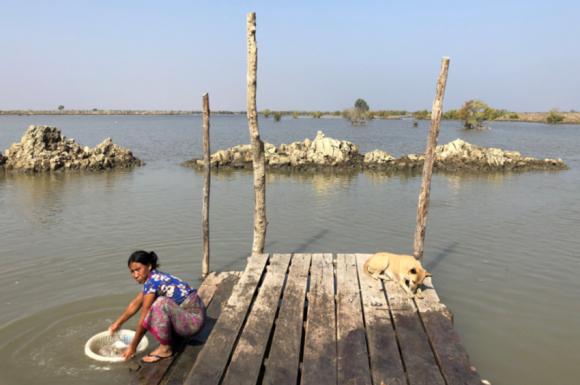The Ecosystem Approach to Aquaculture Management Handbook is developed, which is the initiative in Myanmar Aquaculture Sector. The Ecosystem Approach to Aquaculture Management EAAM trainings were conducted at the national level, regional/state level (Yangon, Ayeyarwaddy and Rakhine) and the community level to the Implementing units (IUs). The EAAM Planning and Capacity Plus (Inland, Coastal Aquaculture) modules also enhanced the knowledge on gender, legal aspects of aquaculture development in Myanmar, CCA/DRM and sustainable inland/marine aquaculture approaches. In addition, the EAAM Practical Tools Module(Community Mobilization, Awareness raising) module was delivered to review the planning process, showcase Myanmar scenarios, and propose climate smart aquaculture solutions and tools on community management. National Level EAAM training conducted 8 days training, regional/state EAAM training conducted 5 days training and the community level EAAM training conducted 3 days training.
With support from the implementing partners (NAG in Yangon and RCA in Rakhine), community mobilization is empowered to the communities in order to identify priorities, resources, needs and solutions in such a way as to promote good governance and accountability. A series of activities such as Community Representative Formulation,
actionable information data collection, and aquaculture management group forming were successfully undertaken.
Water quality and disease management manual is developed to provide a comprehensive technical knowledge on all the water quality parameters that are essential to be maintained to secure good growth, together with an overall knowledge of the biosecurity strategies that need to be performed to reduce risks of diseases in aquatic animals. Different aquaculture systems are described in the manual with details about management of aquatic animals and water resources. Some emphasis is also put on the need to adjust optimal water characteristics depending on the species farmed, also with a focus on integrated aquaculture with aquatic or terrestrial plants.
Rice – fish manual is also developed to provide a comprehensive technical knowledge on all the aspects related to rice - fish productions, and to showcase strategies that can be used to promote polyculture in traditional rice farming systems that may be run under conventional rice management with use of chemicals inputs. Different factors that influence both rice and fish culture are presented in the manual, together with the advantages and disadvantages of fish culture on rice under traditional systems.
Climate Smart Aquaculture leaflets were also developed to provide a comprehensive climate smart knowledge on all related productions, such as (1) How can aquaculture improve agriculture in salinized areas (2) Aquaculture can improve water use for agriculture (3) The importance of mangroves in coastal aquaculture (4) Integrate aquaculture with mangrove conservation (5) Climate smart rice culture and aquaculture (6) Which rice-fish choices to meet farmer’s needs etc.
The criteria for Rice-Fish culture and Mangrove Friendly aquaculture were identified and discussed with National level DoF officials for further implementation process of these activities.








